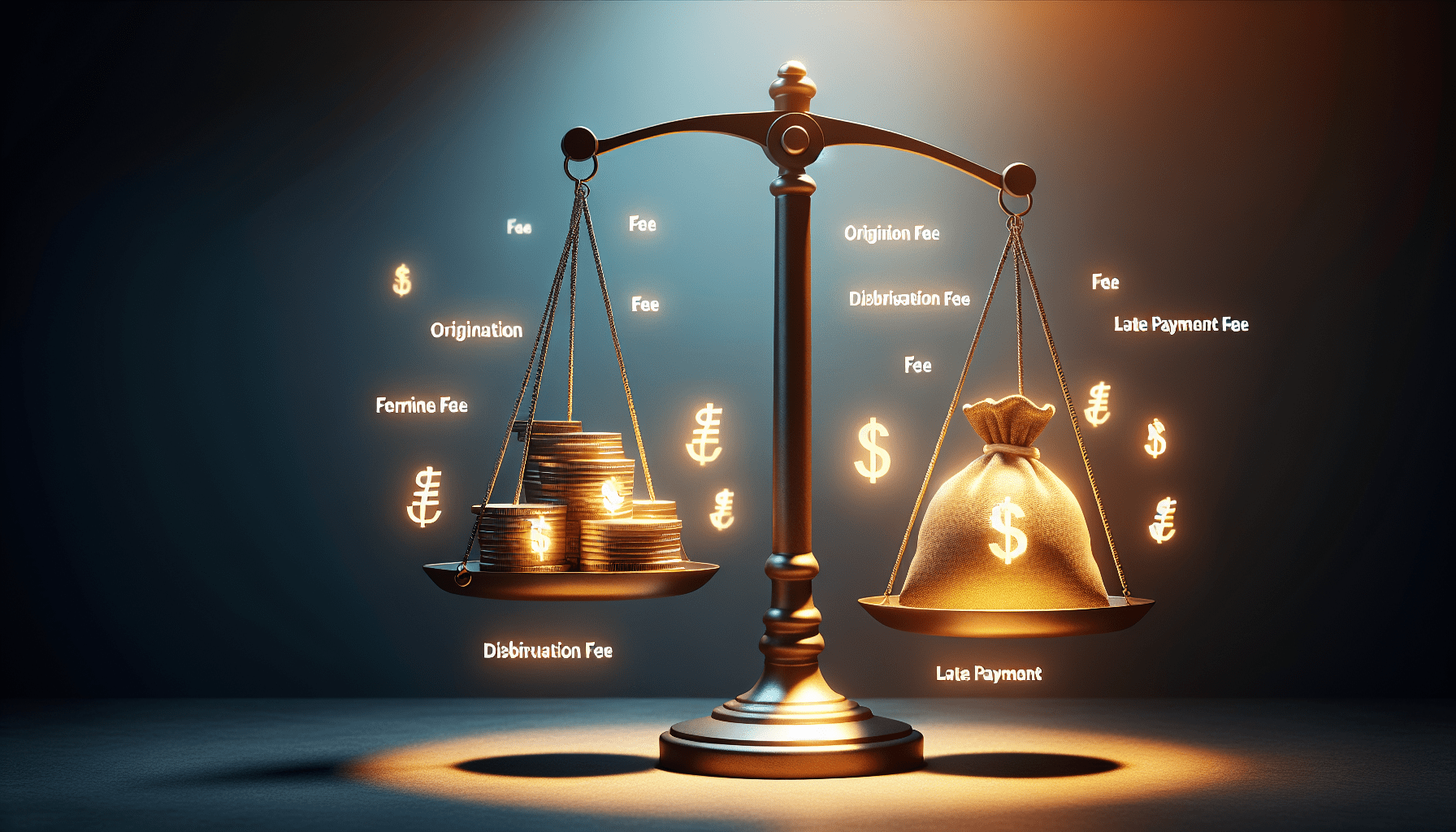What Are The Different Types Of Fees associated with student loans? When it comes to financing your education, it’s essential to understand the various fees that may be associated with student loans. From origination fees to late payment penalties, these costs can impact your overall loan amount and repayment terms. By being informed about the different types of fees, you can make educated decisions about your financial future and ensure that you borrow responsibly.
Understanding the Different Types of Fees Associated with Student Loans
When it comes to student loans, there are various fees that borrowers need to be aware of. Understanding these fees is crucial for making informed decisions about your financial aid options. In this article, we will explore the different types of fees associated with student loans and how they can impact your overall loan repayment.
Origination Fee
Let’s start with the origination fee, which is a fee charged by the lender for processing the loan application. This fee is typically calculated as a percentage of the total loan amount and is deducted from the loan proceeds before disbursal. Origination fees can vary depending on the lender and the type of loan. It’s important to factor in this cost when comparing loan offers from different financial institutions.
Origination fees can range from 1% to 8% of the total loan amount, so it’s essential to understand how much you will be paying upfront. Some lenders may have a cap on origination fees, while others may offer lower fees for borrowers with good credit. Be sure to read the terms and conditions of your loan agreement to find out exactly how much you’ll be charged in origination fees.
Disbursement Fee
Next, let’s talk about disbursement fees, which are fees charged by the lender for disbursing the loan funds to your educational institution. Disbursement fees are typically a flat rate that is deducted from the total loan amount. These fees can vary depending on the lender and the method of disbursement.
Disbursement fees are usually charged each time the lender sends a payment to your school, so it’s essential to factor in these costs when budgeting for your educational expenses. Some lenders may offer lower disbursement fees for electronic transfers, while others may charge higher fees for paper checks. Be sure to inquire about disbursement fees when applying for a student loan to avoid any surprises.
Late Payment Fee
Late payment fees are charges imposed by the lender when the borrower fails to make a loan payment on time. These fees can vary depending on the lender and the terms of the loan agreement. Late payment fees are typically calculated as a percentage of the overdue amount or a flat rate.
It’s crucial to make your loan payments on time to avoid incurring late payment fees, as they can add up quickly and increase the overall cost of your loan. Some lenders may offer a grace period before assessing late fees, while others may charge a fee as soon as the payment is past due. Be sure to read the terms of your loan agreement carefully and set up a repayment plan to avoid late payment fees.
Prepayment Penalty
A prepayment penalty is a fee charged by the lender when the borrower pays off the loan before the scheduled repayment term. This fee is designed to compensate the lender for the interest income lost due to early repayment. Prepayment penalties can vary depending on the lender and the terms of the loan agreement.
Some lenders may waive prepayment penalties for borrowers who pay off their loans early, while others may impose a penalty based on a percentage of the remaining loan balance. It’s essential to inquire about prepayment penalties when considering a student loan, especially if you anticipate paying off the loan ahead of schedule. Be sure to read the fine print of your loan agreement to understand the terms and conditions regarding prepayment penalties.
Collection Fee
Collection fees are charges imposed by the lender when the borrower defaults on the loan and the lender resorts to debt collection efforts. These fees can vary depending on the lender and the costs associated with collection activities. Collection fees are typically calculated as a percentage of the outstanding loan balance or a flat rate.
It’s crucial to stay current on your loan payments to avoid defaulting on your student loan and incurring collection fees. If you are facing financial hardship and struggling to make payments, be sure to contact your lender to discuss alternative repayment options. Ignoring your loan obligations can lead to costly collection fees and damage your credit score.
Conclusion
In conclusion, understanding the different types of fees associated with student loans is essential for managing your educational finances effectively. By being aware of origination fees, disbursement fees, late payment fees, prepayment penalties, and collection fees, you can make informed decisions about your loan options and avoid unnecessary costs. Be sure to read the terms and conditions of your loan agreement carefully and reach out to your lender if you have any questions about fees or repayment terms. With careful planning and financial literacy, you can navigate the world of student loans with confidence and achieve your educational goals.



